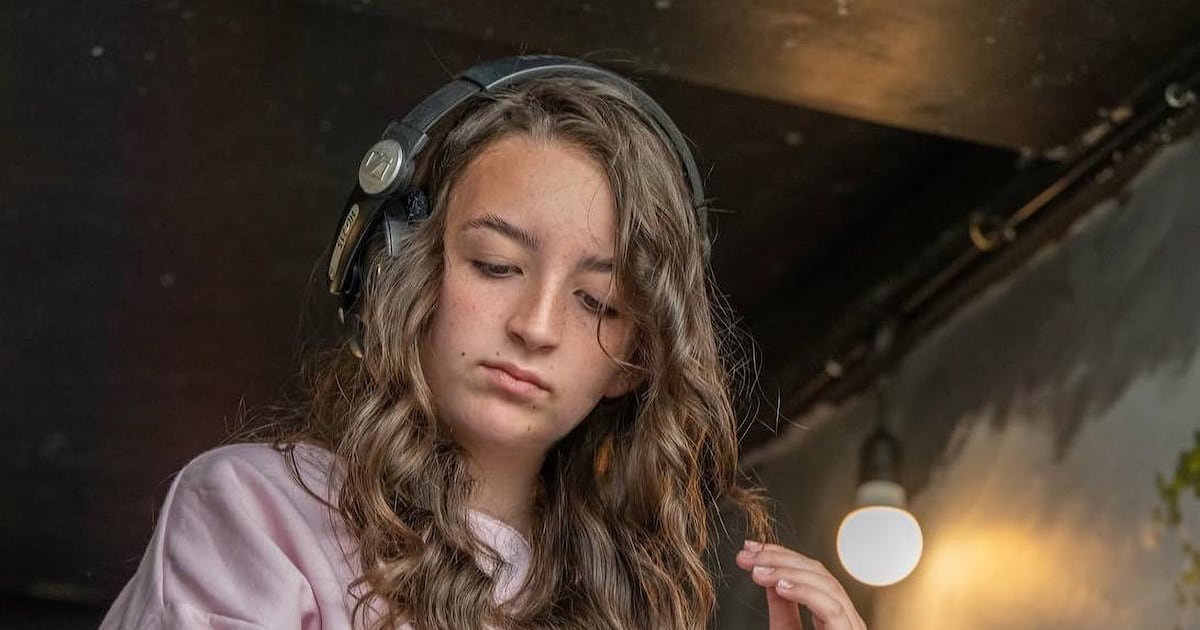Breaking News
‘We need more priests’: Catholic bishop welcomes 13 seminarians into training

Read more on post .
Thirteen seminarians have begun training for the Catholic priesthood and later service in Irish dioceses, the Catholic Communications Office has said.
The intake brings to 77 the number of men being trained for the Catholic priesthood in Ireland.
The 13 seminarians starting this year marks a drop on last year’s 21 and the 15 who began in 2023, but represents an increase on the figures for 2021 and 2022, when there were nine and 10 respectively.
There have only been two occasions since 2010 when 20 or more Catholic seminarians entered training for the priesthood.
This year’s seminarians are undertaking their Propaedeutic Year at various locations: including the Redemptoris Mater Seminary in Dundalk, Co Louth; the Royal English College in Valladolid, Spain; the Royal Scots College in Salamanca, Spain and the International Seminary of Ars in France.
The Propaedeutic Year is the first of four mandatory stages in seminary formation: (i) Propaedeutic; (ii) Discipleship (Philosophical Studies); (iii) Configuration (Theological Studies); (iv) Vocational Synthesis.
On completion of the Propaedeutic Year, a seminarian, with the support of his bishop, then applies to a seminary to continue his formation for an Irish diocese.
Welcoming the new seminarians, Bishop of Waterford and Lismore Alphonsus Cullinan, chairman of the Bishops’ Council for Vocations, said it was “really heartening that 13 men have started as seminarians in various locations to study on propaedeutic courses”.
“We need more priests and we must continue to do what we can to promote priestly vocations in families and in our parishes,” he said.
Fr Willie Purcell, the Catholic Church’s National Diocesan Vocations Co-ordinator, said “the Church and the faithful need priests” and the 13 men demonstrated “to the world that God never ceases to call men to diocesan priesthood”.
Breaking News
Irish Rail to remove gender titles from online train booking system

Read more on post .
People travelling on Irish Rail trains will no longer have to declare their gender when booking a seat online, the company has said.
The change is to come into effect in the coming months and follows feedback from the LGBTQ+ community on how gender is represented on Irish trains.
A survey was carried out by Irish Rail, in partnership with Belong To LGBTQ+ Youth Ireland, with a view to better understanding what mattered to these communities when travelling by train.
Sixty-eight adults took part, with more than half of the respondents identifying as gay, 27 per cent as bisexual, 12 per cent as lesbian, 16 per cent as transgender and 14 per cent as non-binary.
In response to the feedback from the survey, Irish Rail said it would remove all gender titles from its online booking system.
At present, passengers must select either Mr, Mrs or Ms as their title before entering their name when booking a ticket online. Now, they will just enter their name.
The survey was distributed on Irish Rail and Belong To online channels and was not run by an independent polling company.
As part of the survey, Irish Rail made a donation of €5,000 to the support group.
“This approach allowed Iarnród Éireann to gain meaningful insights into the experiences of LGBTQ+ rail users and directly contribute to the delivery of important services for the community,” an Irish Rail spokeswoman said.
Some 71 per cent of survey respondents said they feel safe most of the time as an LGBTQ+ person on public transport, with almost 40 per cent saying rail was more inclusive than other transport options.
More than one third of respondents said they had used trains to attend LGBTQ+ events such as Pride festivals.
Breaking News
Sounds aloud: Teenage DJs encouraged to make some noise in Tallaght library

Read more on post .
Teenagers are being encouraged to bring a full new beat to a Dublin library.
The Noise Music DJ Collective project has increased footfall through Tallaght library’s doors since it was introduced in partnership with South Dublin County Council and by facilitator Gerry Horan.
Local teens aged 14 to 18 create their own music mixes while learning how to use industry-standard professional DJing equipment to master mixing skills such as beat matching, looping and adding effects under expert guidance.
While other library users browse through books downstairs, the DJ students blast out beats upstairs in a dedicated space called The Loft.
Young DJs such as Ellie Long, a third-year student from Clondalkin, earn how to spin turntables like the pros and host gigs, and are given the opportunity to perform live sets and create mixes, which are broadcast on local radio and streamed online.
Known by her DJ handle as Ellie L, the 15-year-old received her first DJ equipment aged nine. When she heard about the DJ classes she said it was a great idea as they “meet others who are interested” in the same music.
“They provide the equipment for us, and we have loads of gigs. The project also provides the experts to teach us how to use the equipment,” she added.
Asked if the music is very loud in the library, she replied: “Well, it’s music.”
Among her favourite musicians are Irish stars Jazzy and musical duo Belters Only, and she likes to mix house music and old trance music.
[ A ‘middle-aged rave’ that ends before midnight? I’ll get my dancing shoesOpens in new window ]
The teenager developed her love for the DJ scene from her father, Alan, and was inspired by his favourite music from the 1990s, which includes Swedish House Mafia and Tiesto.
Having already showcased her talents at the Kaleidoscope festival in Co Wicklow, her dream is to be a professional DJ when she leaves school.
Through a variety of festivals and programmes, Noise Dublin provides support and opportunities for young people aged from 13 to 25 to learn, train, experience and work in the arts.
The Noise Music DJ Collective takes place every Tuesday in The Loft, Tallaght Library.
Liz Corry, senior executive librarian at South Dublin Libraries, came up with the idea as a community space alongside colleague Michael Larkin.
“We have seen a definite increase in the numbers joining the library, especially among the younger age group,” Ms Corry said.
“It’s not a very quiet library, and it is great to see so many young people using the space.”
On National Public Libraries Open Day this Saturday, all library services across the country will be promoting and showcasing the expansive range of services they provide.
Breaking News
Algal bloom on Lough Derg prompts call for multi-agency investigation

Read more on post .
A multi-agency investigation needs to be carried out to find the cause of an algal bloom on Lough Derg and to determine if water levels on the river Shannon were a contributory factor.
The call from independent Cllr Seamie Morris follows the recurrence of a bloom caused by blue-green algae on the shoreline. It is concentrated around Dromineer, an important location for leisure activities on the lake.
Cllr Morris said the pollution “is the worst seen [at that location] for a long, long time”.
The water in past blooms was predominantly blue, he said, but in this case was green, as seen with widespread pollution of Lough Neagh.
Having met anglers who regularly fish the river, including groups as far as Limerick, he said there they observed the lake was “unseasonably low despite high rainfall in recent weeks” and this may have caused the bloom. It has resulted in the death of significant numbers of perch and trout.
The ESB, because of its role in electricity generation at Ardnacrusha, is allowed manage weirs and sluices on the Shannon system, which includes adjusting water levels as the need arises.
Tipperary County Council has advised the public to exercise caution and is monitoring the lake with the HSE. Blue green algae can produce harmful toxins affecting aquatic life but also animals, birds and humans. “It is easily recognised when it forms a bright pea-green paint like scum on or close to the shoreline,” it said.
Cllr Morris said he understood under the EU nitrates directive farmers were allowed discharge liquid wastes into the lake in advance of an October deadline, which meant “there was a perfect storm of conditions” for the bloom to occur.
“This is why I have called for a multi-agency investigation … we can’t accept this is the way it is,” he said.
[ Rules to protect Ireland’s fragile rivers are being repeatedly breachedOpens in new window ]
Cllr Morris said the circumstances had huge implications for the plan to pipe large volumes of water from the Shannon to the Dublin region and was a timely warning of environmental impacts even where levels fall by a small amount. This potential issue with the scheme had not been fully examined, he said.
Lough Derg Anglers Association said it believed an adjustment to the water level “led to significant algal blooms appearing along the shorelines, particularly in Dromineer and Portumna”.
It added: “This situation raises a critical question. Is Lough Derg beginning to resemble Lough Neagh, or will we see a large-scale fish kill similar to the recent event in the Blackwater, which was the largest in the State’s history with no accountability?
“This ongoing issue provides yet another reason why the proposed pipeline to Dublin is ill-advised, as it will only cause significant damage to the local environment and our water.”
The ESB said water levels in Lough Derg were normal for this time of the year.
The ESB “continuously monitors the water levels throughout the Shannon and continues to operate in accordance with the regulations and guidelines for control of the river Shannon,” a spokesman added.
“Algal bloom can occur naturally on bodies of water during periods of high temperatures and low wind. They can also be caused by nutrification – nutrients running off the land and into the water, particularly following heavy rainfall,” he said.
While some small parts of Lough Derg are designated bathing areas, the EPA said “we are out of the bathing water season, therefore the local authority are not required to notify us with any issue”.
In this instance Tipperary County Council and the HSE would decide on any health risks and put up any advisory notifications that are relevant, a spokeswoman added.
-
Culture2 days ago
Taylor Swift’s new cinema outing generates more than €12million in just 24 hours
-
Politics2 days ago
European Parliament snubs Orbán with vote to shield Italian MEP from Hungarian arrest
-
Culture2 weeks ago
Life, loss, fame & family – the IFI Documentary Festival in focus
-
Health3 days ago
EU renews support for WHO’s Universal Health Coverage Partnership
-
Culture2 months ago
Fatal, flashy and indecent – the movies of Adrian Lyne revisited
-
Culture3 days ago
Twilight at 20: the many afterlives of Stephenie Meyer’s vampires
-
Environment6 days ago
Key oceans treaty crosses threshold to come into force
-
Culture1 week ago
Farewell, Sundance – how Robert Redford changed cinema forever









































